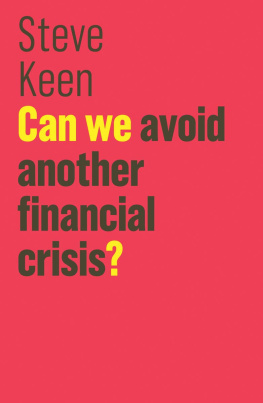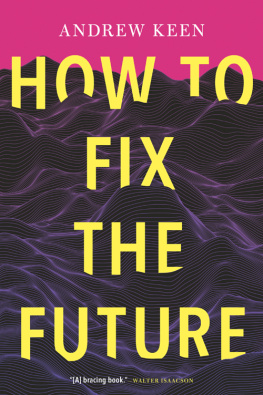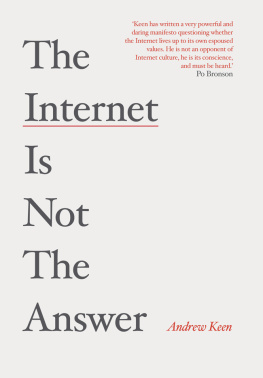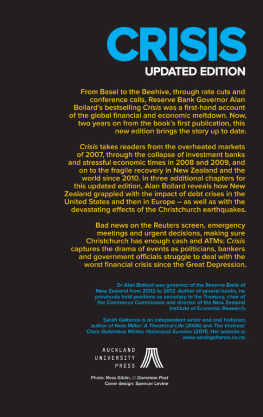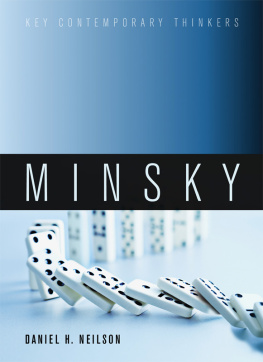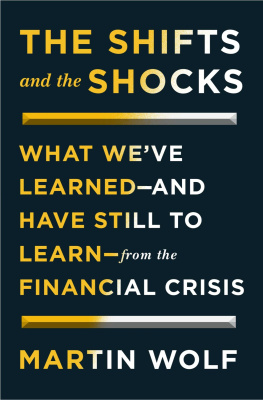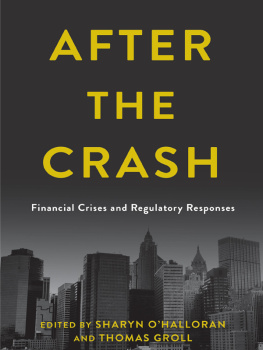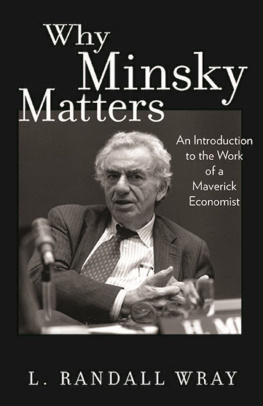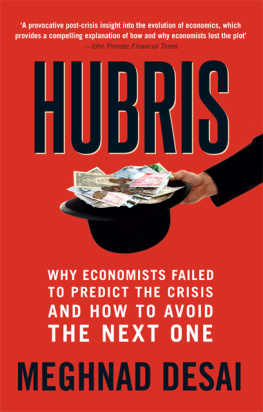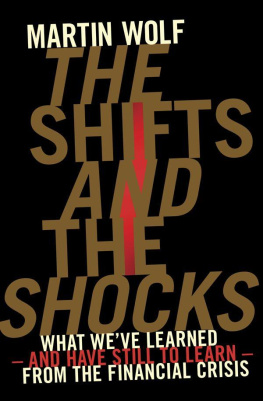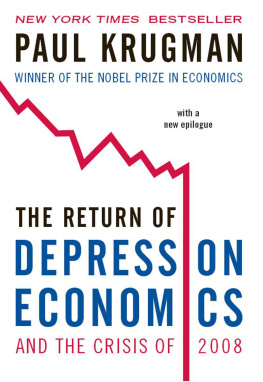Contents
List of Tables and Figures
Guide
Pages

The Future of Capitalism series
Can We Avoid Another Financial Crisis?
Steve Keen
polity
Copyright Steve Keen 2017
The right of Steve Keen to be identified as Author of this Work has been asserted in accordance with the UK Copyright, Designs and Patents Act 1988.
First published in 2017 by Polity Press
Polity Press
65 Bridge Street
Cambridge CB2 1UR, UK
Polity Press
350 Main Street
Malden, MA 02148, USA
All rights reserved. Except for the quotation of short passages for the purpose of criticism and review, no part of this publication may be reproduced, stored in a retrieval system or transmitted, in any form or by any means, electronic, mechanical, photocopying, recording or otherwise, without the prior permission of the publisher.
ISBN-13: 978-1-5095-1376-5
A catalogue record for this book is available from the British Library.
Library of Congress Cataloging-in-Publication Data
Names: Keen, Steve, author.
Title: Can we avoid another financial crisis? / Steve Keen.
Description: Malden, MA : Polity, 2017. | Series: The future of capitalism | Includes bibliographical references and index.
Identifiers: LCCN 2016044967| ISBN 9781509513727 (hardback) | ISBN 9781509513734 (paperback)
Subjects: LCSH: Economic policy. | Political planning. | Debt. | Financial crises. | BISAC: POLITICAL SCIENCE / Public Policy / Economic Policy.
Classification: LCC HD87 .K434 2017 | DDC 338.5/42--dc23
LC record available at https://lccn.loc.gov/2016044967
The publisher has used its best endeavours to ensure that the URLs for external websites referred to in this book are correct and active at the time of going to press. However, the publisher has no responsibility for the websites and can make no guarantee that a site will remain live or that the content is or will remain appropriate.
Every effort has been made to trace all copyright holders, but if any have been inadvertently overlooked the publisher will be pleased to include any necessary credits in any subsequent reprint or edition.
For further information on Polity, visit our website: politybooks.com
Acknowledgements
My biggest intellectual debts are to the deceased non-mainstream economists Hyman Minsky, Richard Goodwin, Wynne Godley and John Blatt. I have also benefited from interactions with many academic colleagues most notably Trond Andresen, Bob Ayres, Dirk Bezemer, Gael Giraud, David Graeber, Matheus Grasselli, Michael Hudson, Michael Kumhof, Marc Lavoie, Russell Standish and Devrim Yilmaz and the philanthropist Richard Vague. Funding from the Institute for New Economic Thinking and from the public via Kickstarter has also been essential to my work.
This book could not have been written but for the work of the Bank of International Settlements in assembling comprehensive databases on private and government debt and house prices for the world economy. thanks to the appreciation that its then Research Director Bill White had of Hyman Minskys Financial Instability Hypothesis (Minsky, 1972, 1977), at a time when it was more fashionable in economics to ignore Minsky than to cite him.
Notes
(source: National Sources, BIS Residential Property Price database)..
1
From Triumph to Crisis in Economics
There was a time when the question this book poses would have generated derisory guffaws from leading economists and that time was not all that long ago. In December 2003, the Nobel Prize winner Robert Lucas began his Presidential Address to the American Economic Association with the triumphant claim that economic crises like the Great Depression were now impossible:
Macroeconomics was born as a distinct field in the 1940s, as a part of the intellectual response to the Great Depression. The term then referred to the body of knowledge and expertise that we hoped would prevent the recurrence of that economic disaster. My thesis in this lecture is that macroeconomics in this original sense has succeeded: Its central problem of depression prevention has been solved, for all practical purposes, and has in factbeen solved for many decades. (Lucas, 2003, p. 1, emphasis added)
Four years later, that claim fell apart, as first the USA and then the global economy entered the deepest and longest crisis since the Great Depression. Almost a decade later, the recovery from that crisis is fragile at best. The question of whether another financial crisis may occur can no longer be glibly dismissed.
That question was first posed decades earlier by the then unknown but now famous maverick American economist Hyman Minsky. Writing two decades before Lucas, Minsky remarked that The most significant economic event of the era since World War II is something that has not happened: there has not been a deep and long-lasting depression (1982, p. ix). In contrast, before the Second World War, serious recessions happened regularly... to go more than thirty-five years without a severe and protracted depression is a striking success. To Minsky, this meant that the most important questions in economics were:
Can It a Great Depression happen again? And if It can happen, why didnt It occur in the years since World War II? These are questions that naturally follow from both the historical record and the comparative success of the past thirty-five years. (1982, p. xii)
Minskys ultimate conclusion was that crises in pure free-market capitalism were inevitable, because thanks to its financial system, capitalism is inherently flawed, being prone to booms, crises, and depressions:
This instability, in my view, is due to characteristics the financial system must possess if it is to be consistent with full-blown capitalism. Such a financial system will be capable of both generating signals that induce an accelerating desire to invest and of financing that accelerating investment. (Minsky, 1969, p. 224)
A serious crisis hadnt occurred since the Second World War, Minsky argued, because the post-war economy was not a pure free-market system, but rather was a mixed marketstate economy where the state was five times larger than it was before the Great Depression. A crisis had been prevented because spending by Big Government during recessions had prevented the collapse of profits which is a necessary condition for a deep and long depression (Minsky, 1982, p. xiii).
Given that Minsky reached this conclusion in 1982, and that Lucass claim that the problem of depression prevention has been solved... for many decades occurred in 2003, you might think that Lucas, like Minsky, thought that Big Government prevented depressions, and that this belief was proven false by the 2008 crisis.
If only it were that simple. In fact, Lucas had reached precisely the opposite opinions about the stability of capitalism and the desirable policy to Minsky, because the question that preoccupied him was not Minskys Can It a Great Depression happen again?, but the rather more esoteric question Can we derive macroeconomic theory from microeconomics?
Ever since Keynes wrote The General Theory of Employment, Interest and Money (1936), economists have divided their discipline into two components: microeconomics, which considers the behaviour of consumers and firms; and macroeconomics, which considers the behaviour of the economy as a whole. Microeconomics has always been based on a model of consumers who aimed to maximise their utility, firms that aimed to maximise their profits, and a market system that achieved equilibrium between these two forces by equating supply and demand in every market. Macroeconomics before Lucas, on the other hand, was based on a mathematical interpreta-tion of Keyness attempt to explain why the Great Depression occurred, which was developed not by Keynes but by his contemporary John Hicks.

